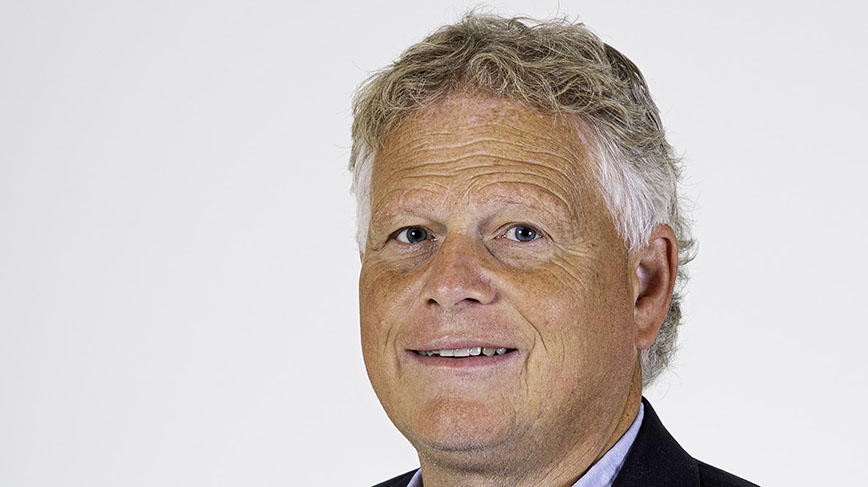Honorary doctorate as the link to industry

He plays a key role in KTH's close collaboration with the Swedish high-tech industrial town Oskarshamn. Bengt Karlsson Moberg is appointed 2023 Honorary Doctor at KTH for his significant contributions to education, research and innovation.
“I am very humbled, honoured and grateful,” he says.
For 25 years he has been responsible for Oskarshamn municipality's business and education initiative Nova. The platform contributes to sustainable regional growth and increased business and public sector competitiveness.
“Oskarshamn is a strong industrial node that is significantly responsible for the social welfare in this part of Sweden. Industries include Scania's cab factory, the nuclear power plant, the battery factory and the Swedish Nuclear Fuel (OKG) and Waste Management Company’s (SKB) facilities," says Bengt Karlsson Moberg.
KTH is needed
The former lecturer in mathematics believes Oskarshamn has a responsibility to make sure the many high-tech companies stays in the municipality. He notes the long distance to universities with cutting-edge expertise and that KTH is needed to maintain welfare.
Nova is working to educations in the form of entire programmes such as a vocational college for operating technicians, or shorter courses such as KTH's "storage in Precambrian bedrock" with participants from all over the world in collaboration with OKG and SKB.
“Oskarshamn is proficient in operating industrial plants, but they key expertise is found at the universities. We run a number of major projects together with KTH, including Sunrise, which deals with future nuclear power.”
The appointment motivation states that Karlsson Moberg "has had an impact on KTH's research by building networks with industry and guaranteeing that research results are put to use". There are ten people in the team and he emphasises how everyone is equally valuable.
Most important partner
"Nova ensures that the right expertise is brought in which in turn leads to a fruitful collaboration between academia and industry. They act as the lubricant and the engine, respectively. KTH is by far the most important partner for us.”
In another collaborative project with KTH, some twenty students have completed their degree and student work together with companies in Oskarshamn.
“The Centre for New Energy Technology brings together industry and academia. There is great expertise across the board here, from nuclear power to paper pulp factories. The centre was previously run by Ramon Wyss, a role now occupied by Björn Laumert, both researchers at KTH.
Speaking of energy, Moberg emphasises the importance of bringing industry, public sector and science together.
Necessary spice
“Industrially, we have the expertise but the scientific community adds the necessary ‘spice’. With KTH's help, the Triple Helix will be complete. We do not want to end up in a fixed energy trajectory. If we are to overcome the climate crisis, we have to mobilise our resources and embrace wind, solar, water, bioenergy and nuclear power.
Karlsson Moberg praises KTH’s sense of responsibility in continued development of our societies. "KTH knows technology but is more than just technology".
– "KTH puts technology in context and tries to understand society as a whole. "I have seen this both in organisational structures and in the people who work at KTH. Our long and fruitful collaboration will become even closer as we move forward. This is where the snowball effect comes in,' says Moberg, who is looking forward to the doctoral ceremony at Stockholm City Hall on 17 November.
FOOTNOTE: Triple helix refers to the collaboration between industry, the public sector and universities or colleges.
Text: Lars Öhman (larsohm@kth.se)

